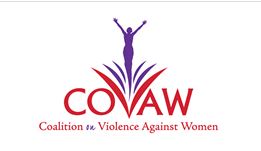
We are here. Listen to us. (Tupo.Tusikizwe)
Click here to see the original post in Voice.Global site-
Project Duration
24 -
-
Lead organisation
Coalition On Violence Against Women
-
COVAW is a national non-profit women's rights organisation in Kenya founded in 1995 as a response to the silence of the Kenyan society in addressing Violence Against Women and Girls. COVAW’s head office is in Nairobi, with satellite offices in Narok and Kwale Counties. COVAW also has projects covering Kisumu, Migori and Kiambu counties.
COVAW’s goal is to contribute to a society where women and girls enjoy equal rights, freedoms and thrive in safe spaces. Its main programmes and activities are related to facilitating access to justice for survivors of Sexual Gender-based Violence, promoting Sexual reproductive health and rights including the elimination of Female Genital Mutilation. In addition, COVAW promotes women’s economic empowerment for vulnerable girls to mitigate child trafficking and commercial sex exploitation, and creates safe spaces for girls to develop leadership skills and violence mitigation skills, and law and policy reforms engagement. COVAW has a strong grassroots presence in Kenya through its community activists.
-
Organisation
COVAW is a national non-profit women's rights organisation in Kenya founded in 1995 as a response to the silence of the Kenyan society in addressing Violence Against Women and Girls. COVAW’s head office is in Nairobi, with satellite offices in Narok and Kwale Counties. COVAW also has projects covering Kisumu, Migori and Kiambu counties.
COVAW’s goal is to contribute to a society where women and girls enjoy equal rights, freedoms and thrive in safe spaces. Its main programmes and activities are related to facilitating access to justice for survivors of Sexual Gender-based Violence, promoting Sexual reproductive health and rights including the elimination of Female Genital Mutilation. In addition, COVAW promotes women’s economic empowerment for vulnerable girls to mitigate child trafficking and commercial sex exploitation, and creates safe spaces for girls to develop leadership skills and violence mitigation skills, and law and policy reforms engagement. COVAW has a strong grassroots presence in Kenya through its community activists.
-
Project
Design Phase (6 months)
The Tupo. Tusikizwe project is empowering marginalised women and girls including those with disabilities, to participate in the County Budget process in Kwale County. This is done by enhancing their voices to demand the uptake of their priority needs and equitable distribution of resources (also called Gender Responsive budgeting) during the planning and budget-making processes. In the design phase, the project is piloted in five villages from Matuga sub-county and scaled up at the implementation phase to 10 villages in Msambweni and Lungalunga sub-counties in Kwale County.
The objectives are:
- To enhance understanding of the normative budgeting framework at the county level.
- To enhance understanding of gender-responsive budgeting and utilisation of gender-responsive budgeting principles.
- To enhance the capacity of women and girls to analyse the Kwale County budget estimates against their needs.
- To recommend actions to enhance the response to Gender Based Violence and economic empowerment of adolescent girls and young women.
- To enhance the capacity of girls and women to lobby for the uptake of their priorities
Implementation Phase (18 months)
The project aims to promote greater creation of more open political participation and civic engagement by Women facing exploitation, abuse and/or violence. The project will empower women facing exploitation, abuse and/or violence to self – advocate and inform evidence based research and policy recommendations to be generated by the project. The evidence based research and policy recommendations will be utilised to influence and catalyse the creation of and access to more open, political spaces, processes and participation by the aforementioned rights holders. In addition, the project will also enhance responsiveness to Gender Based Violence (GBV) and economic empowerment of adolescent girls and young women.
Lessons learnt and innovations from the design phase have informed the development of the Implementation phase. The project will be implemented in Kwale County, in Kenya.
-
-
Design Phase (6 months)
The Tupo. Tusikizwe project is empowering marginalised women and girls including those with disabilities, to participate in the County Budget process in Kwale County. This is done by enhancing their voices to demand the uptake of their priority needs and equitable distribution of resources (also called Gender Responsive budgeting) during the planning and budget-making processes. In the design phase, the project is piloted in five villages from Matuga sub-county and scaled up at the implementation phase to 10 villages in Msambweni and Lungalunga sub-counties in Kwale County.
The objectives are:
- To enhance understanding of the normative budgeting framework at the county level.
- To enhance understanding of gender-responsive budgeting and utilisation of gender-responsive budgeting principles.
- To enhance the capacity of women and girls to analyse the Kwale County budget estimates against their needs.
- To recommend actions to enhance the response to Gender Based Violence and economic empowerment of adolescent girls and young women.
- To enhance the capacity of girls and women to lobby for the uptake of their priorities
Implementation Phase (18 months)
The project aims to promote greater creation of more open political participation and civic engagement by Women facing exploitation, abuse and/or violence. The project will empower women facing exploitation, abuse and/or violence to self – advocate and inform evidence based research and policy recommendations to be generated by the project. The evidence based research and policy recommendations will be utilised to influence and catalyse the creation of and access to more open, political spaces, processes and participation by the aforementioned rights holders. In addition, the project will also enhance responsiveness to Gender Based Violence (GBV) and economic empowerment of adolescent girls and young women.
Lessons learnt and innovations from the design phase have informed the development of the Implementation phase. The project will be implemented in Kwale County, in Kenya.
